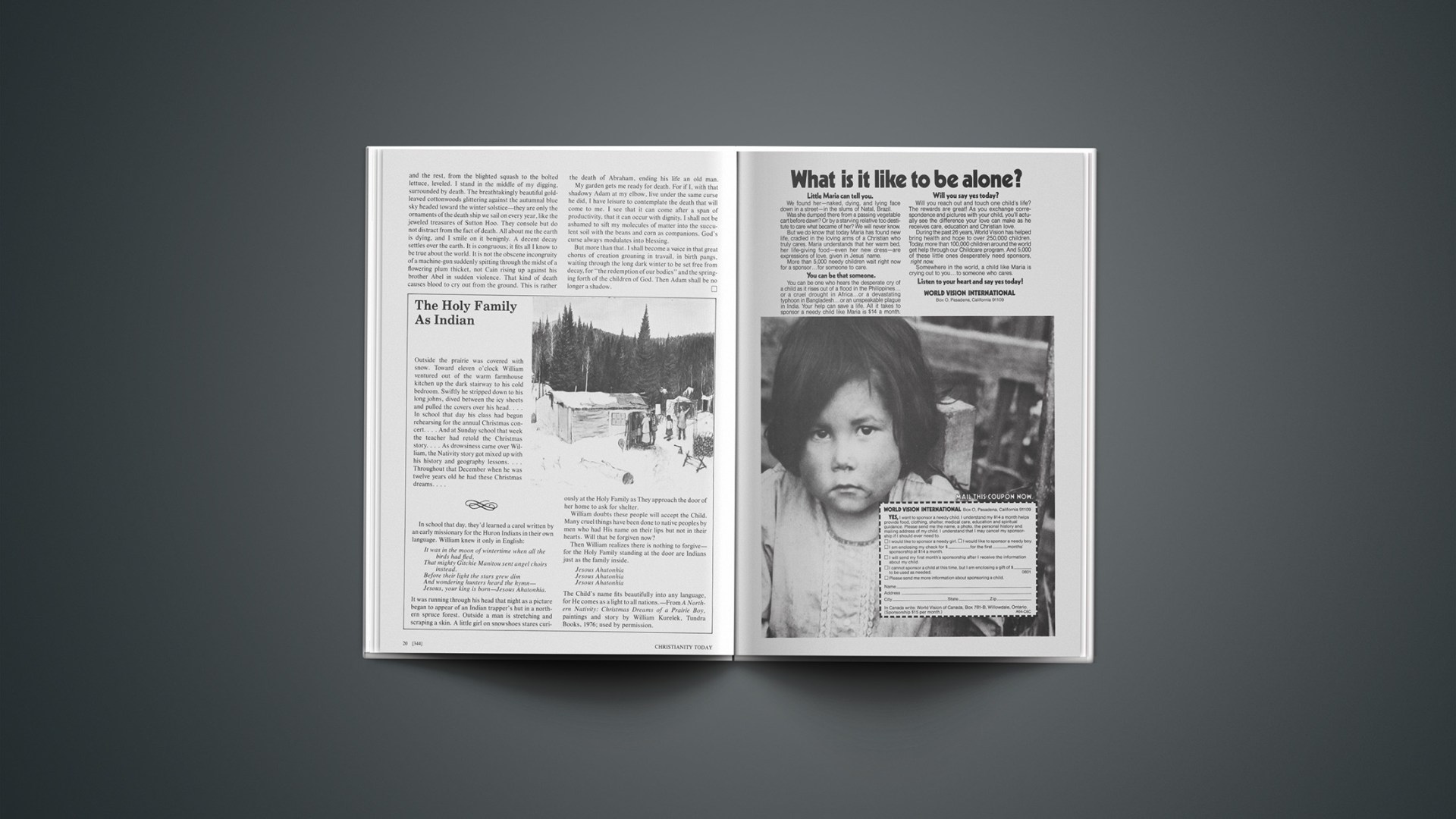Outside the prairie was covered with snow. Toward eleven o’clock William ventured out of the warm farmhouse kitchen up the dark stairway to his cold bedroom. Swiftly he stripped down to his long johns, dived between the icy sheets and pulled the covers over his head.… In school that day his class had begun rehearsing for the annual Christmas concert.… And at Sunday school that week the teacher had retold the Christmas story.… As drowsiness came over William, the Nativity story got mixed up with his history and geography lessons.… Throughout that December when he was twelve years old he had these Christmas dreams.…
In school that day, they’d learned a carol written by an early missionary for the Huron Indians in their own language. William knew it only in English:
It was in the moon of wintertime when all the birds had fled,
That mighty Gitchie Manitou sent angel choirs instead.
Before their light the stars grew dim
And wondering hunters heard the hymn—
Jesous, your king is born—Jesous Ahatonhia.
It was running through his head that night as a picture began to appear of an Indian trapper’s hut in a northern spruce forest. Outside a man is stretching and scraping a skin. A little girl on snowshoes stares curiously at the Holy Family as They approach the door of her home to ask for shelter.
William doubts these people will accept the Child. Many cruel things have been done to native peoples by men who had His name on their lips but not in their hearts. Will that be forgiven now?
Then William realizes there is nothing to forgive—for the Holy Family standing at the door are Indians just as the family inside.
Jesous Ahatonhia
Jesous Ahatonhia
Jesous Ahatonhia
The Child’s name fits beautifully into any language, for He comes as alight to all nations.—From A Northern Nativity: Christmas Dreams of a Prairie Boy, paintings and story by William Kurelek, Tundra Books, 1976; used by permission.










